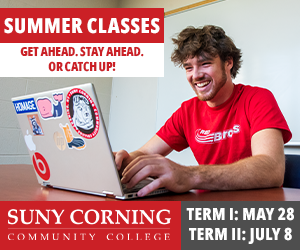With plans to look at the current situation of UR Dining Services, the university-hired independent consultants have begun a campus-wide survey of students, staff and faculty.
The consultants have been working with Dining Services since August and are hoping to determine the level of satisfaction with campus cuisine as a whole.
The study has been extended to include Eastman School of Music students, in an effort to encompass and receive input from all factions of UR.
The outside consultant groups ? Cornyn Fasano Group, ECS Consulting and Market Decisions Corporation ? are attempting to formulate an idea of the status of dining services by getting feedback from the community. “The survey is a review of all the dining locations and an overall view of food services’ operations,” senior Purchasing Manager Jack Noon said.
The survey began Monday and will continue until Nov. 17. Students are being encouraged to participate in this survey, which can be taken online and takes approximately 10 minutes to complete.
It includes questions about a range of dining service options, including meal plan satisfaction, student eating habits, convenience, ratings of the various dining centers and student preferences for various types of food.
Student input is the main force behind the survey, and it is the most crucial part in this stage of the analysis of dining services. Noon stressed the value of this. “Student input is important, and we’re trying to get student input and their expectations [from the survey],” he said.
The focus groups being held by the consultants are also key elements in making any needed changes to all aspects of campus dining. “The focus groups will provide essential information that will help the consultants give us their very best recommendations,” Dean of The College William Green said.
Student expectations for the future of campus dining factor in as a large part of what will fuel changes, and the survey aims to discover what students will be most satisfied with.
Vice President and Chief Financial Officer for UR Ronald Paprocki discussed the fact that some issues are long term. “By longer-term issues, I mean what kind of facilities, dining plans, food offerings, etc. we should have in order to best meet the needs of our students and the academic and student-life programs,” he said.
River Campus also contacted Eastman School Assistant Dean of Residential Life Linda Muise to gather students for the survey, which she was pleased to comply with. “It is wonderful to be involved, I’m very pleased the university included us,” she said. “This is our opportunity, I feel, to tell the university what [students] feel about dining services.”
There is also a large population, more than 40 percent, of vegetarian and/or vegan students at Eastman, which plays a large role in student dining options. Because of this, Muise felt there should be more options for Eastman students and that considerations should be made for musicians’ sometimes difficult schedules. “I would like to see better hours to accommodate the rehearsals and different groups we have,” she said.
Faculty and staff are also being encouraged to participate, and Noon noted that it is an opportunity for people in the campus community other than students to voice opinions as well. “If [faculty and staff] aren’t eating at the various dining locations also, we want to know the reason they aren’t attending,” he said.
Student reactions to current dining services and the survey varied. “I hadn’t heard about the survey but I do plan on taking it,” said sophomore Marina Skrombolas.
Sophomore Shirin Atri also said she planned on taking the survey. “There’s not enough variety. I’m sick of eating the same foods over and over,” she said.
Any changes that will occur as a result of input from the survey will not appear on campus until after the first of the calendar year. The severity of the change will dictate when it can be implemented. Noon stated that anything that is labeled as a major change would not occur until over summer break, especially if the restructuring of any building is required.
The UR community started receiving the e-mails Monday, and they are being sent out in a “rolling” fashion, with each class year receiving the e-mail linking to the survey on different days so as not to overload the Web site. The survey is being given online as the best option to gain replies from students.
Noon said ARAMARK has given paper-and-pen surveys before using flyers as notification and they have proved fairly unsuccessful as a tool for analysis. He commented overall that he expects this survey to give a significantly large amount of feedback. “I’ll be disappointed if we don’t get a fairly large response,” he said.
He encouraged students to take part and add in their ideas. “Take some time this weekend, an optimal time, and complete the survey ? take advantage of it.”
To participate go to mdcweb.mdcresearch.com/projects/9125/.




